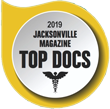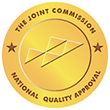Recovery is a journey that extends beyond the completion of active substance abuse treatment. Addiction is a chronic condition; while it can go into remission, individuals who have struggled with substance abuse need ongoing support to maintain their sobriety. Commitment and perseverance are crucial to getting, and staying, well.
Our rehabilitation center offers ongoing therapeutic support through our Aftercare/Continuing Care Program to help patients maintain their sobriety over the long term.
How Important is Continuing Care After Drug and Alcohol Rehab?
 Achieving sobriety through programs like Recovery Keys’ Partial Hospitalization or Intensive Outpatient Program is a significant accomplishment. However, transitioning back to daily life can be challenging. Family responsibilities, jobs, and everyday stressors can trigger the urge to use drugs or alcohol again. Aftercare/Continuing Care helps bridge this transition.
Achieving sobriety through programs like Recovery Keys’ Partial Hospitalization or Intensive Outpatient Program is a significant accomplishment. However, transitioning back to daily life can be challenging. Family responsibilities, jobs, and everyday stressors can trigger the urge to use drugs or alcohol again. Aftercare/Continuing Care helps bridge this transition.
During drug and alcohol treatment, individuals learn skills and tools to avoid substance use. These new habits take time to solidify. Aftercare/Continuing Care provides opportunities through peer networks to practice and strengthen these skills, explore challenges, celebrate victories, and receive advice from others on a similar path.
Many individuals with substance abuse disorders also struggle with co-occurring conditions like anxiety, depression, bipolar disorder, or post-traumatic stress disorder. These underlying issues may require long-term or even lifelong care. Aftercare/Continuing Care ensures that patients in Ponte Vedra Beach stay connected with chemical dependency counselors as needed, offering support in managing these issues and addressing any signs of struggle.
Chemical dependency counseling and treatment allows individuals in recovery to learn skills and acquire tools to help avoid using drugs and alcohol. Yet those new habits take time to take root and become permanent. Establishing healthy habits that will become lifelong practices takes commitment and attention. Aftercare/Continuing Care provides opportunities through peer networks to practice and strengthen those skills, to explore challenges, to celebrate victories and to give and receive advice from others walking a similar path.
Another factor contributing to relapse is that many patients with substance abuse disorders also struggle with co-occurring conditions such as anxiety, depression, bipolar or post-traumatic stress disorder. Underlying issues that led to the addiction may take longer to resolve than the length of active addiction treatment. Treating and managing these illnesses may require long-term or even lifelong care. Aftercare/Continuing Care helps keep patients living in St Johns and Duval Counties in contact with chemical dependency counselors as often as needed, so we can provide support in continuing to work through these issues, manage other mental health conditions and be alert to any signs of struggle.
How to Prevent Relapse From Substance Abuse
Because of the power of addictive substances such as alcohol, opioids and methamphetamine, and the often deep and profound changes that recovering addicts must make to stay sober, relapse after addiction treatment is a common occurrence. Despite their best intentions, emotions, stress, depression or anxiety often causes individuals to slip back into destructive patterns of thinking or behavior that lead to substance use again.Through Aftercare/Continuing care, Recovery Keys works to prevent relapse by providing ongoing support through individual therapy, group therapy and dependency counseling. This support is key to helping individuals in recovery stay the course and remain abstinent.
What Happens After You Complete Your Substance Abuse Treatment?
At Recovery Keys in Ponte Vedra Beach, we view Aftercare/Continuing Care as a crucial phase of treatment. After completing active drug or alcohol treatment, patients receive a discharge plan outlining steps to strengthen their recovery. Our therapists and counselors assist patients with:
- Connecting with a psychiatrist, psychologist, or therapist for ongoing mental health support.
- Finding 12-Step or other support meetings in the community.
- Preparing for steps to take if relapse is imminent.
Getting the Support You Need After Rehabilitation
Our alumni uniformly say, 'I have learned tools, ways of life, ways of living that I just never had before. I didn't naturally share my feelings. I didn't naturally feel safe. I didn't naturally trust. I didn't naturally exercise... These are behaviors that are new for me. And now that I have implemented them in my life, I feel fulfilled.
Patients are encouraged to participate in our Aftercare Group therapy, which meets weekly at our Ponte Vedra Beach center. This group helps patients overcome challenges, cope with stress, and develop a healthy, balanced lifestyle. Participants practice giving and receiving advice and build bonds that can support them through life’s challenges.
One major relapse factor is returning to the same social situations and friends from when they were using. Developing a new network of sober friends is essential for sustaining recovery. Our Aftercare Group provides a space for individuals in recovery to share experiences, laugh, and receive sober support. Participation can continue for months or years post-treatment, reflecting the chronic nature of addiction.
The Aftercare/Continuing Care Program keeps our chemical dependency counselors in contact with patients, allowing us to spot warning signs of relapse early and intervene if needed. It also connects patients with our Recovery Keys alumni community in Ponte Vedra Beach, providing a support network and an easy way to communicate with our treatment teams.
At Recovery Keys, you are never in this alone. The risk of relapse is an unfortunate fact of life for those in recovery – the impact of drugs, opioids, pain medications and alcohol on the brain are just that powerful. But we are committed to providing the support and resources that will give our patients and former patients the best chances of a lifelong recovery.
To learn more about Aftercare/Continuing Care call Recovery Keys at 904-551-1394 today or schedule an evaluation now.





















